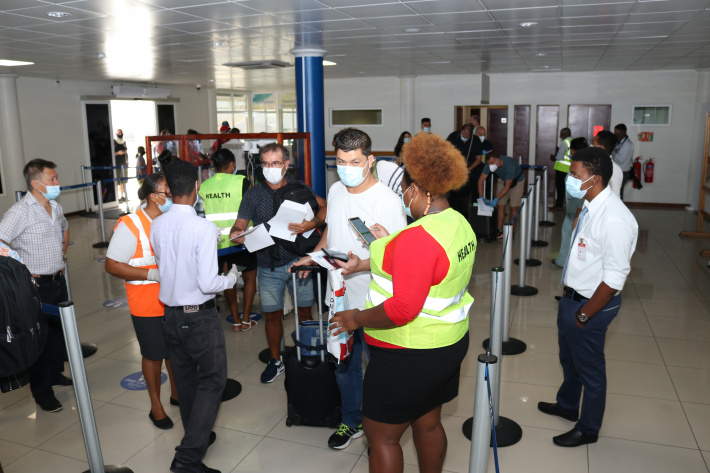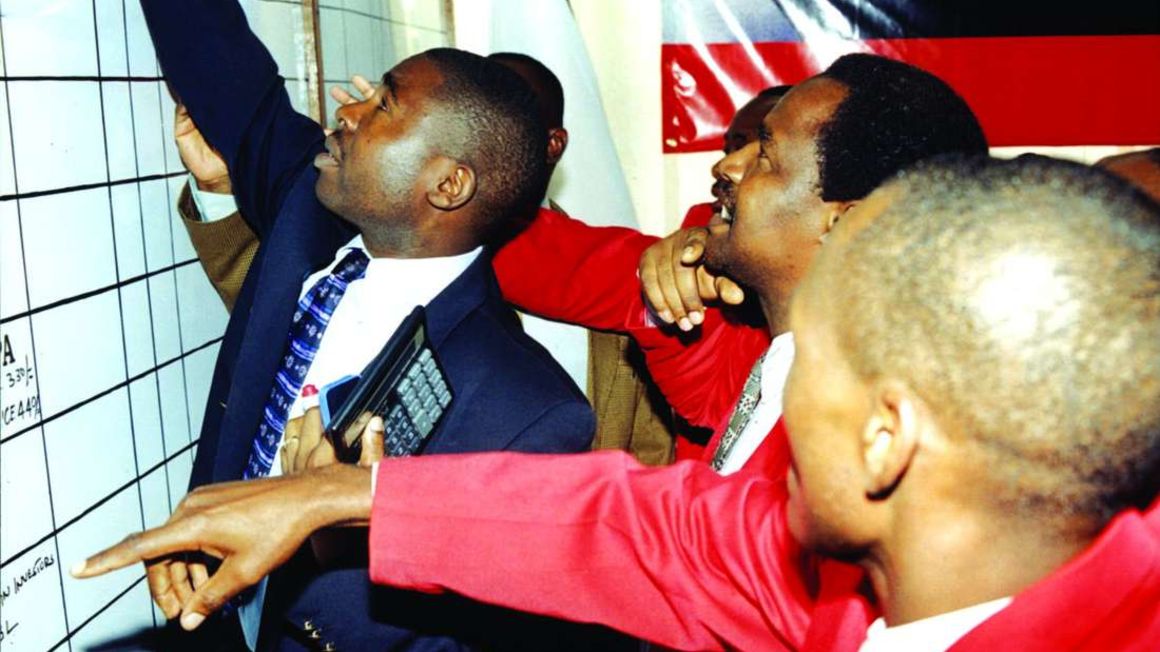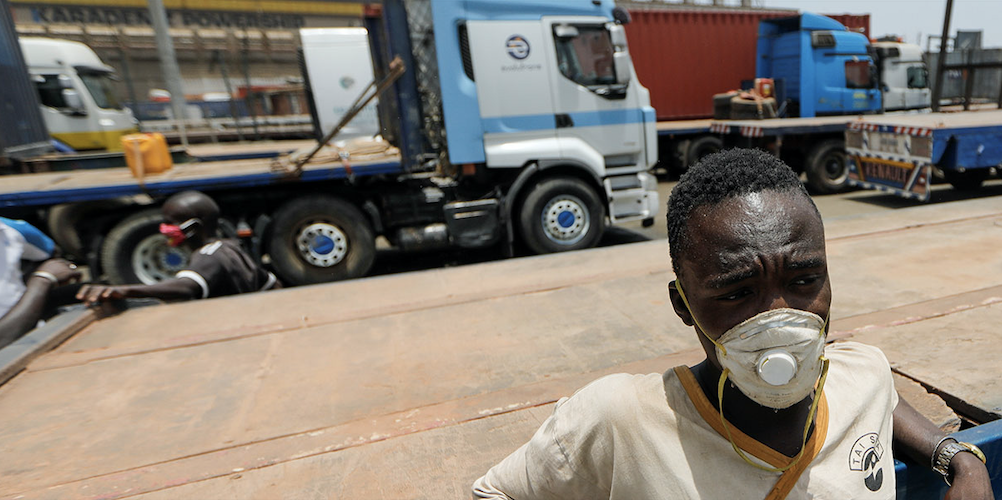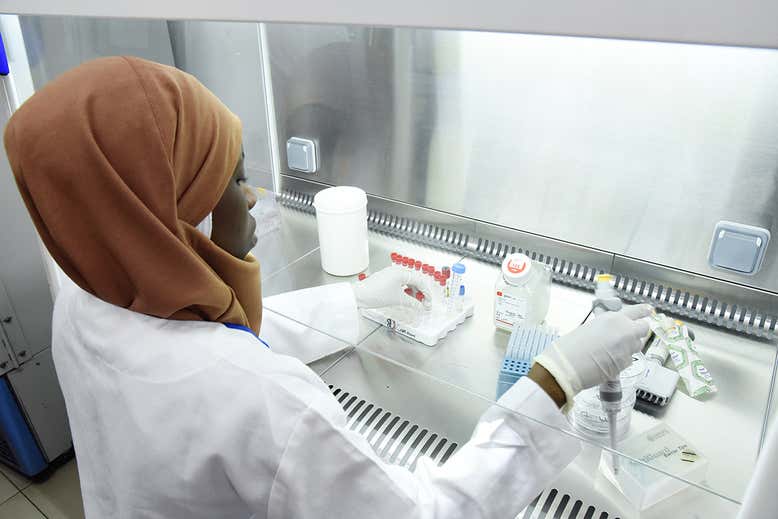Seychellois Alexander Afif was the first person from outside Seychelles to use the Seychelles online electronic Health Travel Authorisation system (HTA) and was therefore also the first to be approved by the system.
The system is a platform that uses biometric and mobile technologies to remove much of the friction of travel by enabling travellers to supply their identity details, allowing them (travellers) to be vetted ahead of departure.
Coming from attending a week of personal affairs, Mr Afif was among 162 passengers who disembarked on Emirates flight EK 705 yesterday morning from Dubai. He was among those who produced the hard copy, for scanning, to the health officers, while some others scanned theirs through their mobile phones.
Mr Afif was greeted by Alan Renaud, the principal secretary for Civil Aviation, Ports & Marine; Renaud Irminger, the chief executive of Travizory security (the Swiss-based company who created the new travel system) and other staff from the Department of Civil Aviation, Ports & Marine. He was also presented with a token.
The new online electronic health travel authorisation system to be compulsory for everyone visiting Seychelles as from today, September 18, 2020, streamlines the arrival process for travellers. It can be downloaded on https://seychelles.govtas.com and applicants can apply to enter Seychelles up to 72 hours before departure flight.
“It was a very smooth process and straightforward as everything was on one page and there was not much to do. The only issue, I would say there is, is that there was supposed to be an app, but when you click on the app link it wasn’t working. I would have preferred to use the app because I hardly use the website,” Mr Afif said.
As for Dubai residents, Mohamad Khalaf and Olga Zolotova on their first visit in the country, online electronic health travel authorisation system was fast, efficient, user friendly and easy to use as filling the data was straightforward.
They said they were a little bit scared when they first saw the Travizory update, especially during this time of pandemic when something new comes out, it takes a week to implement and to get perfect.
“I immediately got on the live chat and they say not to worry, everything is ok, just apply and you will get the approval within six hours and we got the approval within four hours, so we slept peacefully that night,” said Khalaf, noting that they are looking forward to a nice vacation in our country since their last travel was a year and a half ago because of Covid-19.
According to Bertrand Loze, policy analyst (Intern) at the Department of Civil Aviation, Ports & Marine, the department was for a first, satisfied with the time taken for the flow of passengers to went through the HTA scanning through encountering some technical challenges. As the health officials were still adapting with the new HTA scanning system, causing some minor congestion, he added that such challenges will be overcome when the officials will get used to using the system. The health officials were using a mixture of their new and old personal phones.
Mr Loze claimed said that 90% of the passengers on board the Emirates flight had used the electronic health travel authorisation system for entry into the country, since its launch on September 15, 2020.
“I’m very proud of the whole airport team today – we didn’t just introduce new technology, we did it on a day of extraordinary challenges: a big flight with 162 passengers, 2/3 using the new system, 1/3 the old, and for good measure, groups of seafarers with specific conditions.
“Despite these complications, the improvements heralded by the technology was clearly on display, thanks to the hard work and preparation of the teams, and I am confident things will get only better and guests will be even more delighted.
All things which are new are hard, but that’s part of the fun. Ask any child. I have no doubt we will build the muscles required for the job,” he said.
From the Department of Civil Aviation, Ports & Marine website, visitors coming to Seychelles must provide the HTA travel authorisation, either on paper, PDF form downloaded on mobile, or in the ‘Seychelles Travel Authorisation’ mobile app. A passport will also be needed when applying for the HTA and during your travel.
Visitors must ensure that they have valid travel insurance with full medical coverage for the duration of their stay in Seychelles. Passengers at check-in without a valid travel authorisation will not be able to board the plane or vessel and they will have to bear the cost of cancellations and re-bookings.
The HTA, which comes in six languages, was put in place by the government to allow the resumption of commercial passenger travel while mitigating the spread of Covid-19 and protecting both the travellers and residents in the country.
Source: Seychelles Nation




